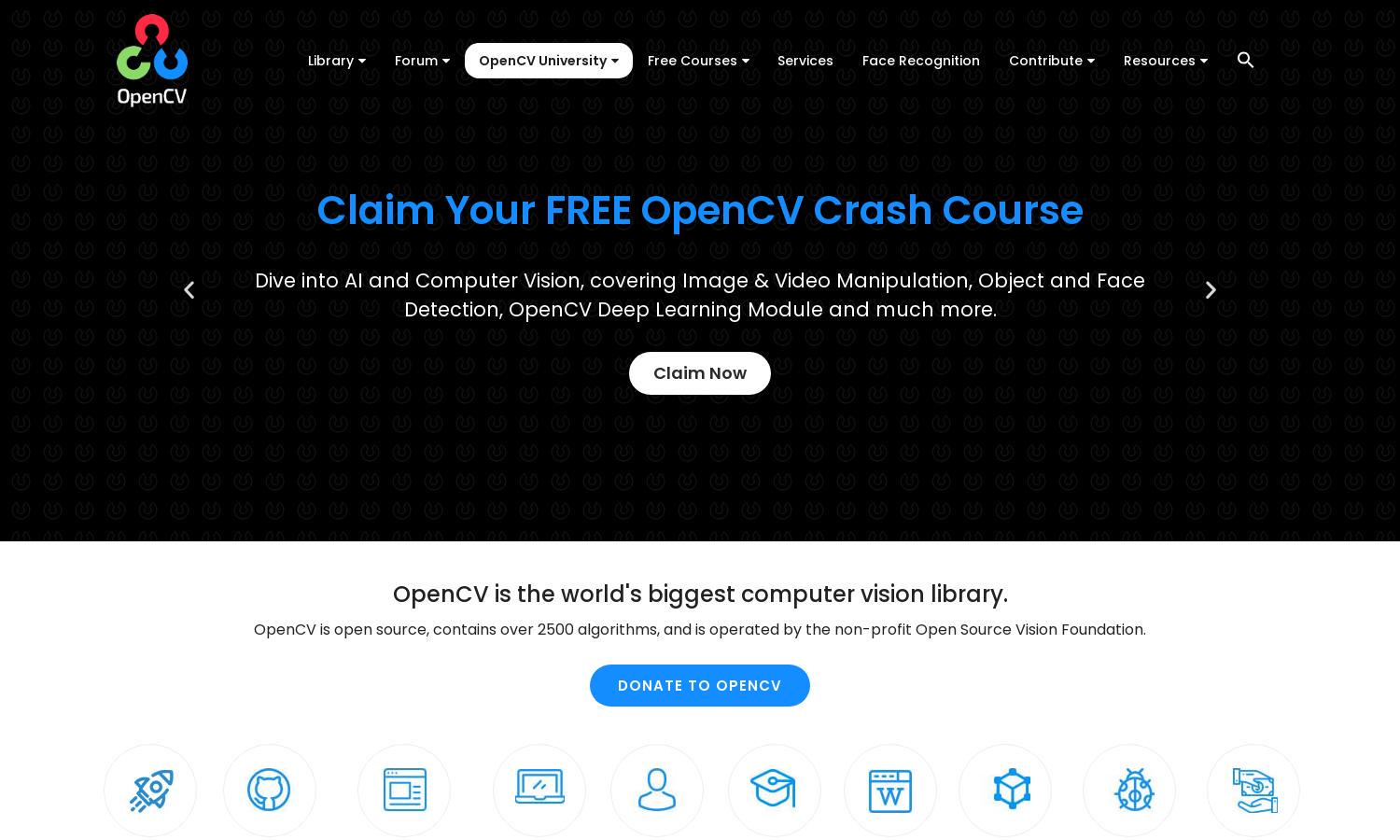OpenCV

About OpenCV
OpenCV is a premier open-source Computer Vision library that equips developers with over 2500 algorithms for image and video analysis. Ideal for professionals and enthusiasts, OpenCV enhances project capabilities in AI, providing real-time performance and extensive support for diverse platforms and devices.
OpenCV offers a free-to-use open-source model under the Apache 2 License, allowing commercial use without cost. Users can access premium courses and consulting services at competitive rates, maximizing their learning and project success. Enjoy discounts through educational partnerships and membership options.
OpenCV boasts a user-friendly interface designed to enhance usability for developers. Its clean layout ensures effortless navigation through resources and features, making it easy to access tutorials, documentation, and community support. This seamless experience empowers users to build advanced solutions efficiently.
How OpenCV works
Users can interact with OpenCV by starting with free registration to access a plethora of resources. After onboarding, they're guided through straightforward documentation and tutorials that showcase each feature. The platform allows developers to implement extensive algorithms in their applications efficiently, fostering innovation in computer vision.
Key Features for OpenCV
Real-time Optimized Library
The real-time optimized library of OpenCV offers an extensive suite of algorithms designed for efficient image and video processing. This unique feature empowers users to develop high-performance applications quickly, making OpenCV an essential tool for developers in computer vision and AI.
Extensive Algorithm Support
OpenCV provides users with access to over 2500 algorithms tailored for various computer vision tasks. This extensive support simplifies project development and encourages creativity, allowing users to implement complex solutions effortlessly, making OpenCV a go-to resource for AI enthusiasts.
Cross-Platform Compatibility
OpenCV's cross-platform compatibility enables developers to work across diverse operating systems, including Linux, MacOS, and Windows. This feature ensures users can leverage its powerful tools regardless of their development environment, enhancing flexibility and ease of integration in projects.
You may also like:








